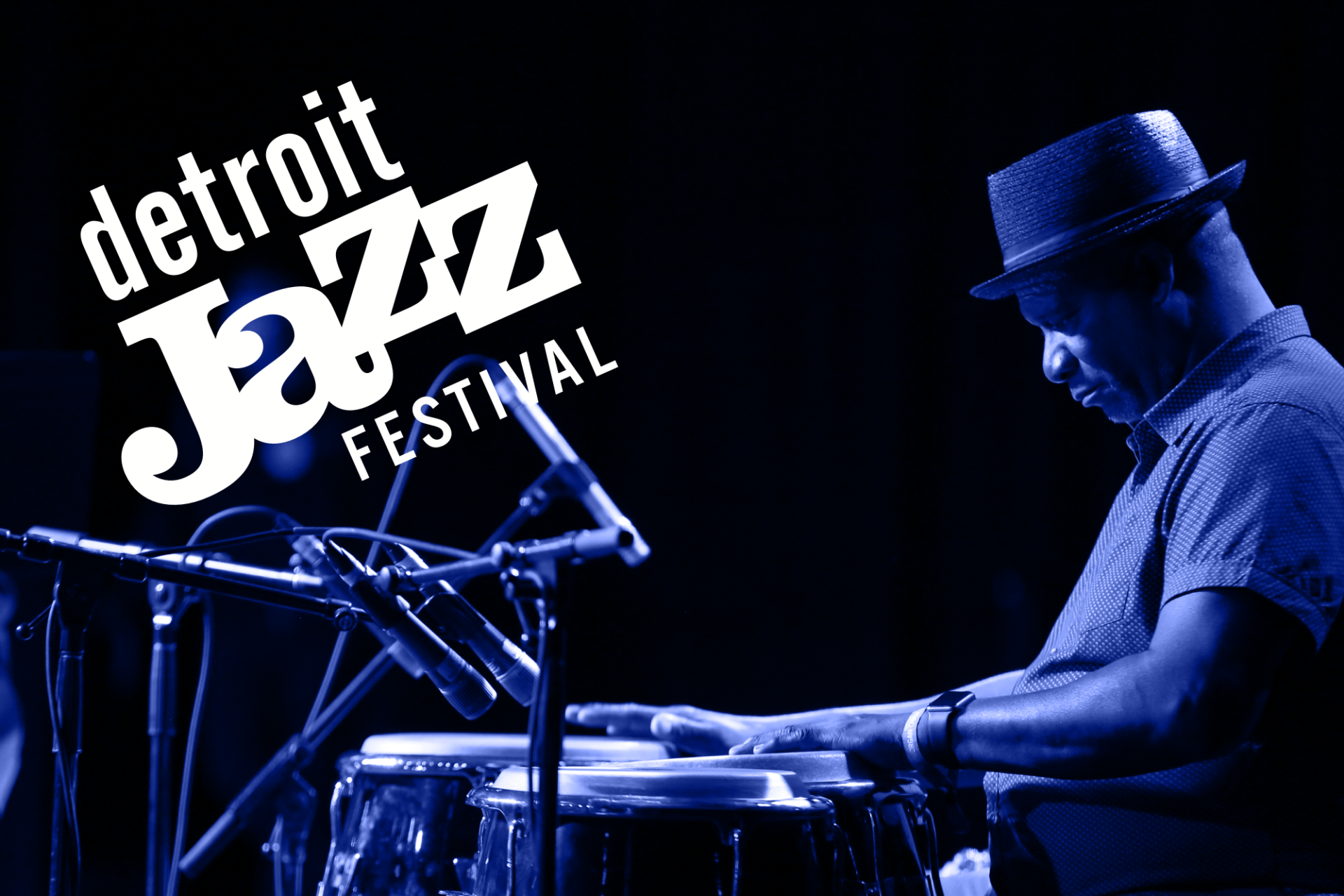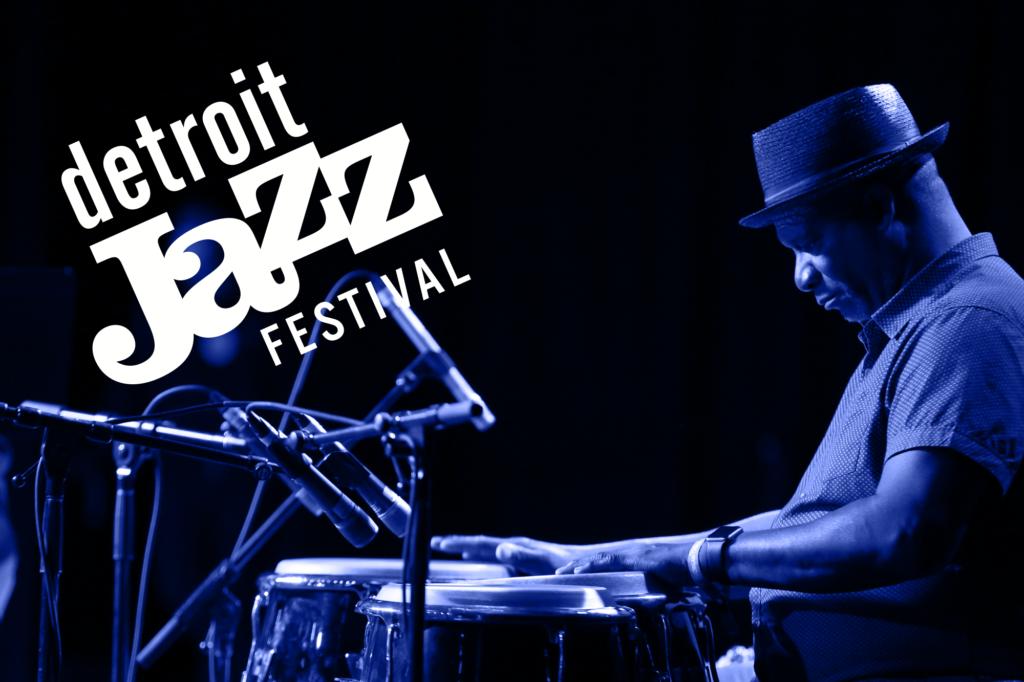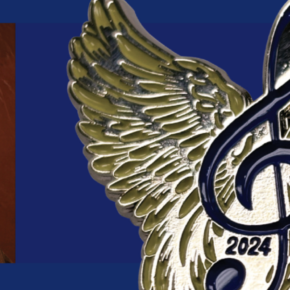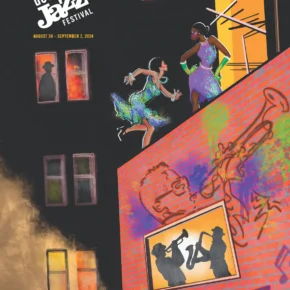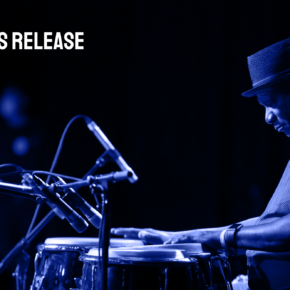The Detroit Jazz Festival news team sits down with Chris Collins, President & Artistic Director, Detroit Jazz Festival Foundation for some questions on the artist selection process.
Click Here for 2024 Open Artist Submission Form
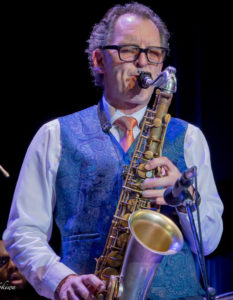
Q: Take us through the process as you screen audition applications for the festival. How do you handle the incoming load?
A: Programming artists each year for the Detroit Jazz Festival is a multi-layer process. Firstly, I designed the open artist submission process in order to ensure that everyone has an opportunity to share their music and projects. It doesn’t require them to find me somewhere, know me personally or have an agent. Everyone has an equal opportunity to be heard and programmed because of the open artist submission. This process allows for any artist, anywhere, to simply go to the website, fill out an application, and upload their tracks. The artist’s materials go into our proprietary system and, as I listen weekly to each and every application through the June 1st deadline, ensures their vision and music goes directly to me.
That’s important because we can get as many as a thousand submissions each year, and I want to make sure we don’t miss any.
I go through those submissions blindly. In other words, in my first pass, I don’t look at the names and applications — I simply listen to the music and come to an understanding of whether it’s appropriate for the jazz festival according to the craftsmanship, language, quality of the ensemble and the overall artistry and communicative interaction. Once I have identified the leading artistic and musical submissions, I explore the particulars of the ensemble to avoid overlap of artists, ensure representation of cultural/stylistic/generational/gender perspectives, and, as is our tradition, seek to celebrate the artists and influences of the Detroit jazz scene.
Q: Are you looking for anything in particular as you sort through these submissions? Or do you just want to be grabbed by something as you listen blind, and then dive into that?
A: Well, there’s always the visceral connection any listener makes with any music, and that’s important for sure. I have analyzed, been influenced and loved music from a plethora of genres and generations. But we have to remember, the Detroit Jazz Festival is a jazz festival. That means we exist to celebrate and propagate the definitive language, artistry, interaction, craft and history of jazz. While those elements are constantly evolving, welcoming new influences and fusion with other genres, they are identifiable points and requisite priorities that define music as being truly jazz.
As an active jazz artist who has invested my life in the study, creation and evolution of the bottomless well that is jazz music, artistry and invention, I must start with the baseline question: Is this a jazz performance? Regardless of the fact the word jazz has come to be used in many ways to describe all sorts of music and influences, there is a definable answer to that question.
Q: Anyone who attends all four days of the festival has to notice the diversity of artists onstage. It kicks off with traditional New Orleans music, the first expression of jazz, and over the weekend and three stages, the audience can hear modern, traditional, big band, bebop, experimental – all facets of the genre. How much of this is intentional and how much a reflection of what’s being submitted?
A: Jazz is a living, breathing art form. Therefore, innovation and evolution are well represented at every Detroit Jazz Festival. But we can never ignore; It is all built on a history, tradition and language of past innovators who collectively serve as the foundation on which we all build. That said, while emulation is important to the development of every jazz artist, the art form highly values artists’ who absorb the tradition, build on the masters and, ultimately, seek to develop their own voice to propel the music forward without abandoning the past—it takes a lifetime of work and real courage!!
In fact, much of why we have jazz festivals is to celebrate the creative manipulation of historic styles and thoughtful homage to past jazz innovators-but, not necessarily by presenting verbatim recreations of past recordings/ensembles/compositions. For instance, there are Festival artists steeped in the language of traditional swing and the innovators of that era, but they’re not just doing recreations of existing recordings/ ensembles or attempting to copy a past master. They’re building on all that in a creative way within the language of that particular historic model. The results bring the past and the present together in a way that both pays homage and honors the soul of the art form. So, all of those things come into play. I believe our continued efforts to outreach, engage, listen and thoughtfully identify and eliminate barriers will provide access, inclusion and create equitable opportunities. The result? Every Detroit Jazz Festival will be a plethora of diversity stylistically, generationally, culturally and in every other way on stage and off.
Q: Jazz is a small world in many ways. Do you solicit tapes from artists you’ve heard good word of mouth on, but who maybe are not very well known yet?
A: Yes. As I said, identifying and engaging artists for the Detroit Jazz Festival is a multi-layer process. It’s one of the reasons the board of directors sought me out, as they wanted an active artist in this role. First, to understand the genre language and the history and be able to make those decisions. But secondly, my life is performing and engaging with artists all over the world.
I’m a fairly accessible guy in the community. I do my very best to engage important artists, whether they’re aspiring, in the middle of their career or legendary artists.
The last piece of that whole process though, is sheer mathematics. There’s always more I’d like to program. So, I keep a record of standout artists and ensembles I’ve heard, in open submission or elsewhere, that I couldn’t program this year. I do my best to seek them out in the future, or at least let them know that I’m very interested in what they’re doing, and I’ll look for an opportunity down the road.
Q: If an artist had submitted once and didn’t get in, should they submit again? Or should they consider themselves not qualified?
A: I often hear from an artist: “I submitted to the festival every year for the past five years, and I’ve never been selected.” While the open artist submission is open to everyone and an important initiative to stay in touch, submitting an application does not guarantee selection-but it does guarantee your work will be heard and considered. While selection is based on genre, quality level, artistry etc., as we have discussed, I believe artists/ensembles should submit every time, every year that it is important for them artistically.
Nothing should preclude you from submitting every year, but again, our festival is not just a gig. It should be the culmination of your work as an artist and your ensemble’s evolution. That’s what should be on a jazz festival stage.
Q: Finally, what is your one piece of advice to a new artist or a new talent that’s hoping to get their shot at the Detroit Jazz Festival? What would you tell them to do?
A: Performing at the Detroit Jazz Festival, or any large jazz festival, it’s not just another gig. So, in that way, while we’re occasionally fortunate to premiere artists that are about to take a huge leap in their career, the festival performance is more of a culmination of a lot of effort and evolution, whether it’s a brand-new ensemble or artists that we know well. Is it good music, but not well rehearsed? Or is it really well rehearsed and it lacks some of the elements that suggest this is an important performance that people should hear? I’m looking for those projects that are well-developed/creative visions and ensembles in addition to the leadership and individual skills in the band. A group of artists that have (to use a Detroit tuner phrase) “put in the wrench time” developing a concept and then realizing that concept in their music.
Once an ensemble presented a proposal: They were performing the music of a specific legendary artist, in exactly the same format and sound and texture and arrangements of the original artist in their historic recordings. They called me because they had submitted, and wanted to get some feedback, which I’m happy to give on any submissions. That particular year at the festival, we happened to have that exact legendary artist playing their legendary music with their quintet in that style. And while interpreting standards, emulating artists and ensembles is a key part of any jazz artist’s evolution, development and understanding, that’s not always an appropriate performance for a premier jazz festival. In fact, many jazz icons have told me to honor their legacy and the Detroit tradition by studying it, absorbing it, adding to it, and ultimately evolving it into something uniquely personal to you and your band. Additionally, I tell artists, don’t submit three things that you’re doing right now. Submit the one thing that is really important to you at this moment in time, reflects who you and your ensemble are now, and the project you’re most passionate about.
Lastly, everyone in the jazz ecosystem, artists, patrons, journalists, radio personalities and certainly artistic directors, are merely caretakers of an art form and set of traditions that are more profound than any one person. Our best hope is to propagate the tradition and create opportunities for the art to live, breathe, evolve, grow in connectivity and invite everyone to partake of its gifts. I approach this role engaging research, open-mindedness, thoughtful conversation, attention to diverse perspectives and scholarship in addition to my own path and experiences as an artist. In other words, the Detroit Jazz Festival belongs to everyone… as jazz does. My role is not to program only my personal favorites or artists from my crew but to continually develop relationships, resources, wisdom and initiatives that realize the mission of the Detroit Jazz Festival Foundation, engage the jazz community as a whole and provide meaningful assets and valuable examples of success (and lessons learned) to my successors and future generations of DJFF administration. As a farmer once told me, “I don’t own this farm…it is not about me…I am just the caretaker with a skilled and dedicated family. Our role is to honor those who came before us by maintaining the health of the soil, learning, creating and activating new enriching systems, archiving the successes/challenges/assets and passing on a healthy farm and the collective wisdom of my family and all the generations that came before us.” I learned similar on the bandstand from my mentors, and I assure you, the Detroit Jazz Festival Foundation team commits to this philosophy in everything we do.
